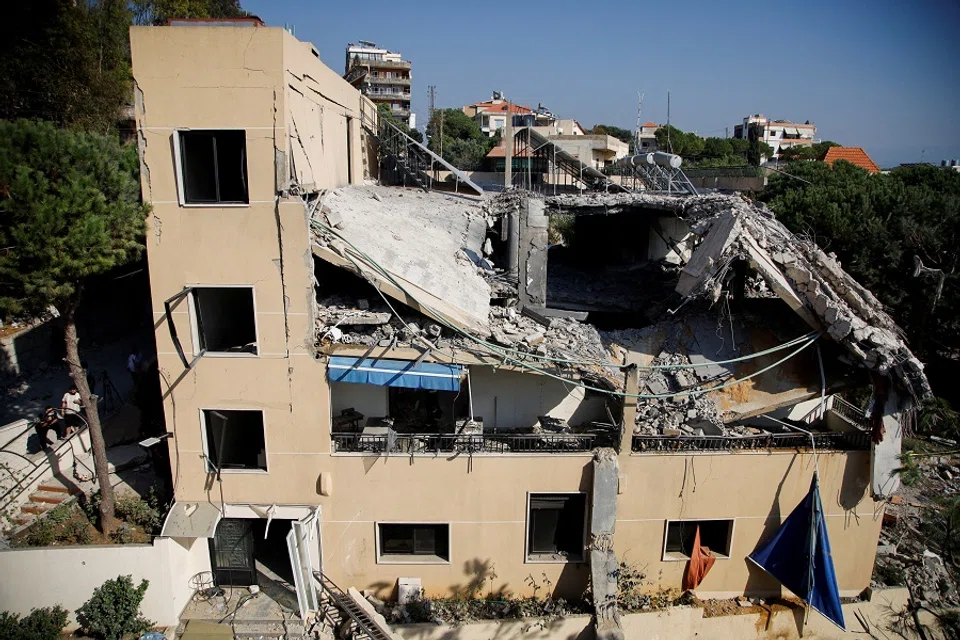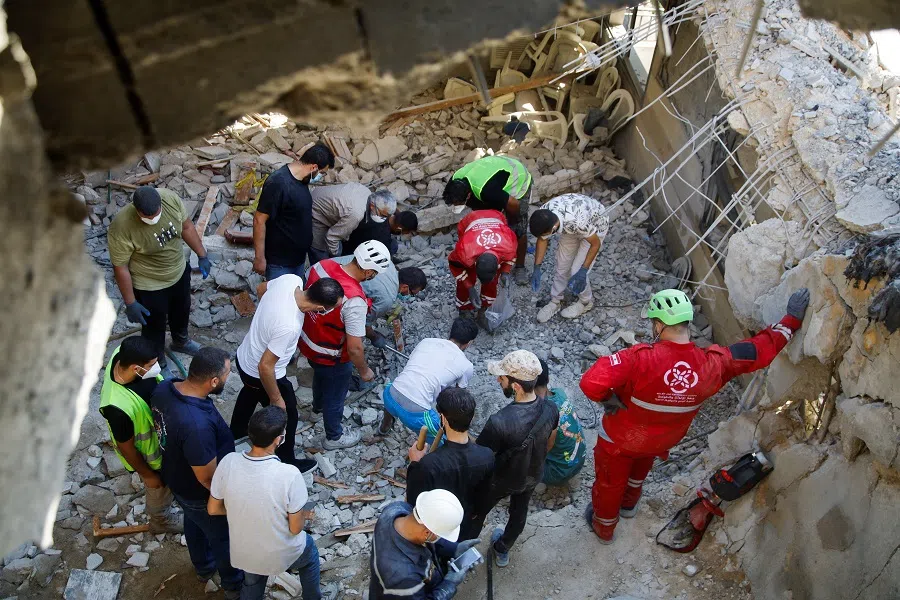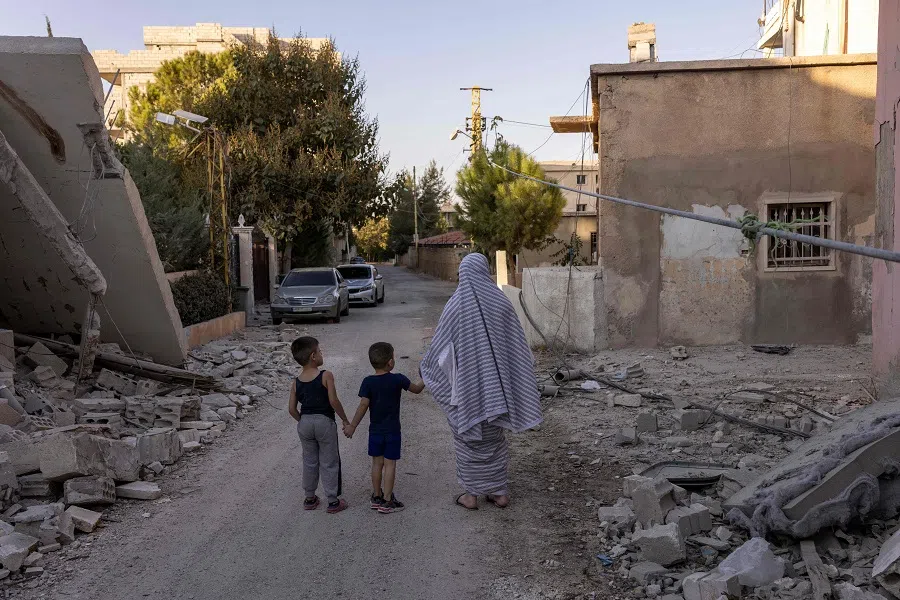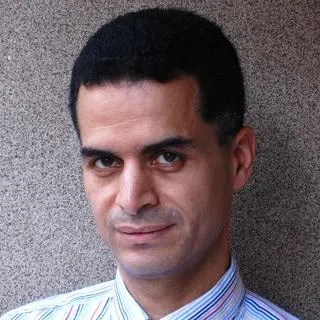The futility of ongoing revenge: How will Arabs respond to the Israeli invasion of southern Lebanon?
Journalist Mohamed El-Bendary observes that there is increasing resentment on the Arab street towards the hardline government of Benjamin Netanyahu, even as the killings of a Hamas or Hezbollah commander would only lead the groups to emerge stronger. Meanwhile, Arab governments are likely to deepen trade and investment with China and Russia.

Anger is mounting on the Arab street amid Israel’s launch of a ground invasion in southern Lebanon on 1 October. Many Arabs are still mourning the loss of many Lebanese lives, including Hezbollah leaders. On 27 September, on the fourth consecutive day of surprise attacks on Lebanon, Hezbollah leader Hassan Nasrallah was killed in an Israeli airstrike, following the airstrike on 20 September that left at least 31 people dead, including senior Hezbollah leaders.
Those Arabs are also calling on their governments to safeguard their countries’ security by reducing their purchasing of communication devices from the US and its allies.
Israeli attacks on Lebanon, along with the earlier explosions of pagers and hand-held radios in the country — which left 39 people killed and some 3,000 injured — is increasing resentment on the Arab street towards the hardline government of Benjamin Netanyahu, though some Arab states such as Egypt and Qatar have persistently been pressing for diplomacy and engaging in humanitarian endeavours.
Dangerous moves that could trigger a full-scale war
The attacks, explosions and assassination of Hamas leader Ismail Haniyeh and the killing of senior Hezbollah military commander Fuad Shukr weeks earlier, exhibit how Netanyahu’s war blunders are turning into a dangerous move that can trigger a full-scale war. His radical government — which thrives on escalating conflicts in the region — should realise that Hezbollah will continue to avenge the killing and maiming of Lebanese by unleashing retaliation strikes; after all, they have been launching systematic, reciprocal attacks on the Israeli-Lebanese borders for a year now.

Many of the Arabs interviewed on the mainstream Arab media argue that Netanyahu is endeavouring to disconnect Hezbollah from Hamas and that he will fail. On the contrary, they add, the airstrikes and explosions will further strengthen the bond between the two resistance groups. Those Arabs are also calling on their governments to safeguard their countries’ security by reducing their purchasing of communication devices from the US and its allies.
During a visit to Lebanon from 20-30 July, I witnessed how the spirit of resistance against Israel is extremely strong among the Lebanese.
In this emerging “new era” of war, Israel’s planting of explosives in communication devices sold to Hezbollah will further strengthen resistance among the Lebanese due to its indiscriminate nature, particularly youth who proudly welcome becoming Hezbollah fighters. These young Lebanese have been living in dire economic circumstances since their country plummeted into an economic crisis five years ago — one of the worst economic meltdowns in the country’s recent history. They view Israel as an invader and occupier of Arab land.
Hezbollah seen as protector by some
During a visit to Lebanon from 20-30 July, I witnessed how the spirit of resistance against Israel is extremely strong among the Lebanese. Hezbollah has gained the trust of ordinary people on the street through establishing educational and health programmes, as well as maintaining security and safety in parts of Lebanon where there is no government-enacted rule of law. “Hezbollah is protecting us and has liberated our country from Israeli occupation,” said a native of the southern Beirut suburb of Dahiyeh — a Hezbollah’s stronghold which suffered casualties in the device detonations.
On two different days, I travelled south as closely as permissible to the Lebanese-Israeli borders. One day, I loudly heard the Israeli defence system Iron Dome fending off rockets fired by Hezbollah; on another day, Israel attacked Hezbollah targets in the south. Yet the Lebanese living there ran their errands as usual with little or no attention paid to the border bombardment. The Lebanese in the heavily built up neighbourhoods in the south have become used to hearing the sounds of explosions — so I was told by an elderly Lebanese man from Naqoura city.

The attacks and persistent Israeli aggression against Lebanese and Palestinians are extremely concerning to neighbouring Arab states. Weaponising the digital world represents a true shift from the use of conventional military weapons in warfare, and it is likely to become inescapable over time. Hence, for the Arab states, there is a dire need for organised and rapid action including a drastic deviation from buying devices from countries that Washington and Tel Aviv exercise an influence on.
Stronger impetus for wider role of the RMB
Recent developments will also push Arab governments to further deepen trade and investment with China and Russia, and other states that Washington has no financial or political monopoly over their institutions. They will have a strong impetus to implement a wider role for the Chinese RMB in their countries in order to enhance and speed trade transactions with Beijing. After all, China has become a powerful manufacturer of advanced communication apparatus — probably more advanced than those produced in the West.
The truth is, every time Israel assassinates a Hamas or Hezbollah commander — or launches a ground invasion — the two groups would emerge from it stronger militarily.
As the world regrettably steps into a new epoch of combat, we are likely to witness a shift in the use of conventional weapons in military conflict. This will push nations to trade within their trusted bloc. Therefore, Arab countries would expand their trade and investment with “friendly” countries. It would be conceivable that they would even invest more in sending their children to study abroad in countries like China and Russia to become further equipped with modern technological tools that enable them to manufacture mobiles, walkie talkies and pagers on Arab soils or else they may fall victims to similar tragedies.
While Israel wants to eliminate Hezbollah, the ongoing Israeli ground invasion of Lebanon — like the 1982 and 2006 ones — will fail, and instead, further empower the image of Hezbollah as a freedom fighter group in the Arab world. The truth is, every time Israel assassinates a Hamas or Hezbollah commander — or launches a ground invasion — the two groups would emerge from it stronger militarily. In fact, Hamas and Hezbollah members welcome death and “martyrdom”. Hence, and as witnessed on the anniversary of the 7 October attacks, it is predictable that they will continue to respond to the attacks and explosions with the possibility of exacerbating the conflict. Regrettably, this is also the reality that Washington and Tel Aviv have avoided seeing.



![[Big read] When the Arctic opens, what happens to Singapore?](https://cassette.sphdigital.com.sg/image/thinkchina/da65edebca34645c711c55e83e9877109b3c53847ebb1305573974651df1d13a)
![[Video] George Yeo: America’s deep pain — and why China won’t colonise](https://cassette.sphdigital.com.sg/image/thinkchina/15083e45d96c12390bdea6af2daf19fd9fcd875aa44a0f92796f34e3dad561cc)
